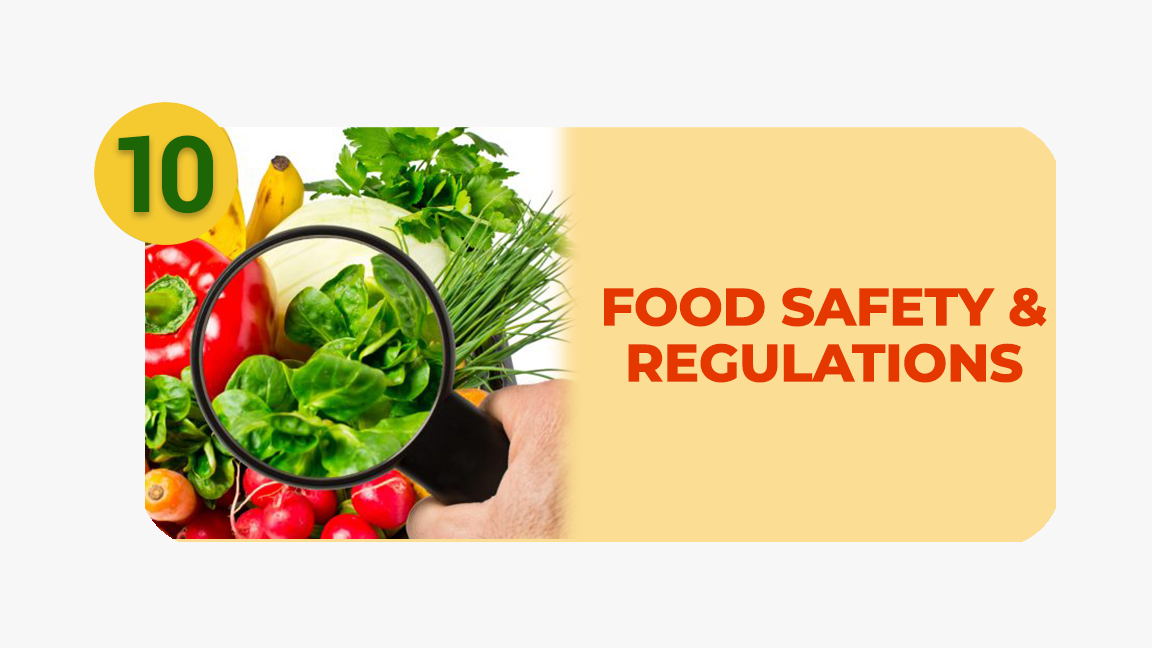The Department of Agriculture proposed food-safety plans to protect consumers from food contamination through Food Safety Awareness Week which is held every last week of October.
The Department of Agriculture (DA) expressed its commitment to enhance food safety measures and protecting consumers from food-borne contamination during Food Safety Awareness Week last October 24, 2022 opening ceremony with theme “Sapat at Ligtas na Pagkain Ating Adhikain, sa Hapag ng Bawat Pamilyang Pilipino ay Siguruhin.”
Presidential Proclamation No. 160, series of 1999, declared the end week of October as Food Safety Awareness Week to raise awareness on the need for continuous education on food safety and to achieve the goal of eradicating food poisoning and other foodborne illness.
On the website of the DA, Assistant Secretary James Layug said that “celebrations such as this are clear manifestations of our commitment to our mandate; this reminds us that food safety plays a very important role in the food trade. International and local movement of food commodities, require us to be vigilant on food quality and wholesomeness so as not to compromise food safety amidst the challenges of the limited access and availability of food supply caused by increasing prices and climate change.”
The Food Safety Focal Group (FSFG) was established in 2018 by virtue of DA Special-Order No. 155 in compliance with Implementing Rules and Regulations of the Food Safety Act of 2013 to be in responsible for gathering and disseminating related information.
The 11 DA Food Safety Regulatory Agencies (FSRAs) are tasked to coordinate and monitor all DA programs and activities on food safety, provide consultative and feedback mechanism to facilitate the delivery of appropriate action and/or response on related issues and concerns, participate in pertinent program and planning activities, harmonizing efforts on food safety within FSRAs, and recommending food-safety-related plans and policies for action by the Office of the Secretary.
The current FSFG is composed of the Agricultural Training Institute (ATI), Bureau of Agriculture and Fisheries Standards (BAFS), Food Development Center (FDC), National Dairy Authority (NDA), Sugar Regulatory Administration (SRA), Fertilizer and Pesticide Authority (FPA), National Meat Inspection Service (NMIS), Bureau of Animal Industry (BAI), Bureau of Plant Industry (BPI), Bureau of Fisheries and Aquatic Resources (BFAR), and Philippine Coconut Authority (PCA).
“Our Office for Regulations commits to harmonize and unify our efforts on overseeing compliance to regulations and enforcement of the same at the department level, in collaboration with other government agencies as well as concerned non-government food business operators. Advocacy to the Food Safety Act of 2013 coupled with quad-media information awareness such as social media campaigns and webinars, and physical information drive-through caravans conducted at the regional and local government levels are deemed vital. Hence, our Office shall continue to serve as primary movers of these efforts,” Layug said.
DA Senior Undersecretary Domingo Panganiban, through Assistant Secretary for Operations Arnel de Mesa, said that the agency has been working on a number of food safety projects under the leadership of President Marcos Jr.
The following are some of the food safety projects:
● Restructuring the country’s food safety policies and regulations;
● Developing world-class safety standards with help of institutions such as the Food and Agriculture Organization of the United Nations (FAO) and the World Health Organization (WHO); and
● Encouraging closer coordination between local government units, national government agencies, and the scientific community to boost food safety research, education, and surveillance efforts in the Philippines.
He also bared that the President- led DA forges ahead “under a policy of concentrating public investments” that includes:
● Constant modifications to field protocols as the country improves its risk-based inspection of food products throughout the value chain;
● Improvement of national policies for food and nutrition security and the enforcement of more rational food safety regulations, including early detection of threats; and
● Various measures to ensure stronger political will at the local level by encouraging local executives to prioritize food safety and advocacy beyond the “business as usual” approach.
De Mesa said on behalf of Panganiban, “I am confident that the new standards and policies that will result from our actions will address potential food safety problems throughout the production and distribution system. They will also improve the sanitation and safety practices of all those seeking to sell food products in the Philippine market.”
Tags: #DA, #FoodSafety
